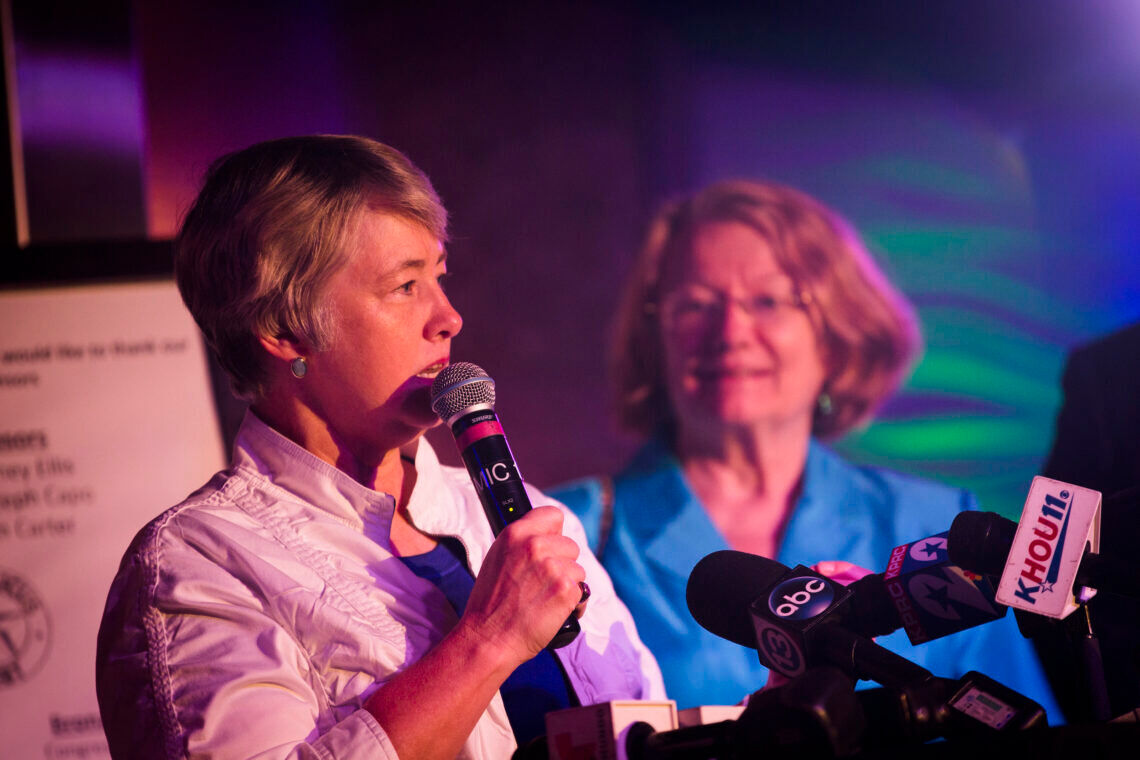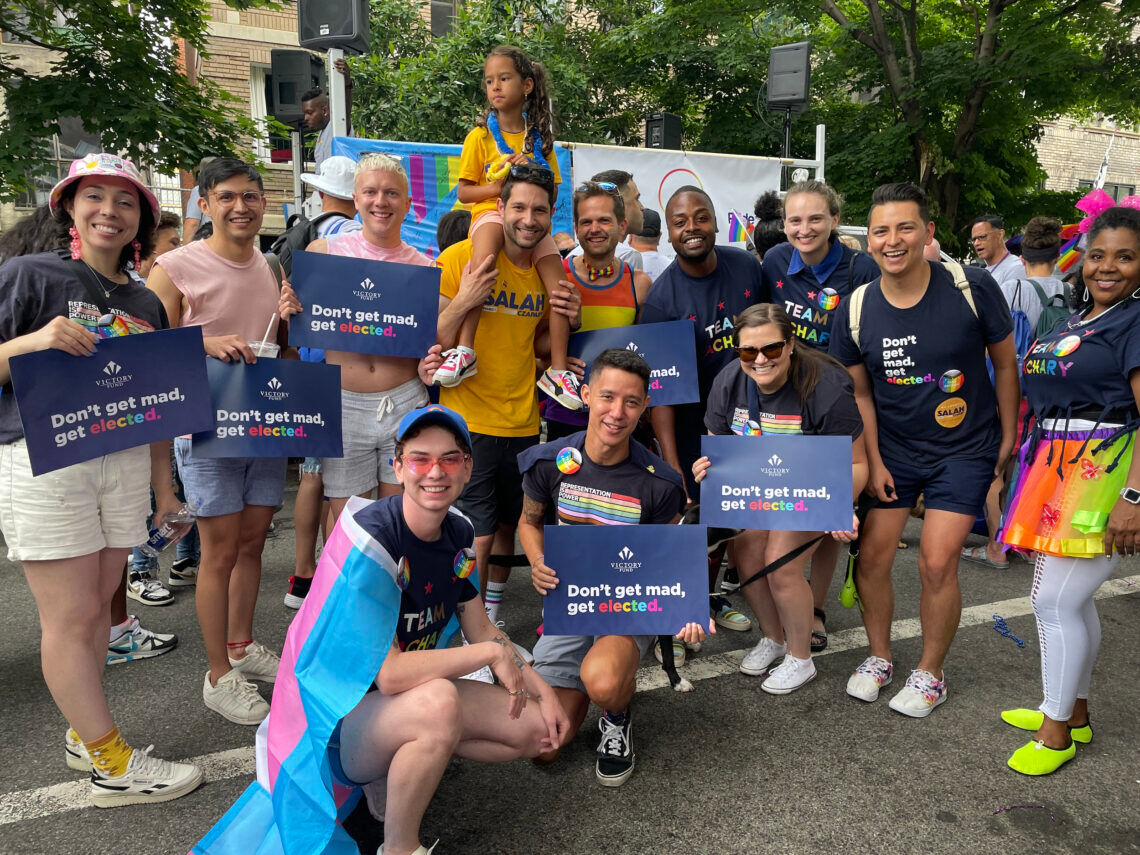Last June, the Hoboken Public Library in New Jersey hosted a Banned Books Read-A-Thon event in honor of Pride Month. Library director Jennie Pu described the event as “very simple” and “almost boring,” where participants merely read excerpts from books out loud.
But that didn’t stop the right-wing outrage machine from stirring up trouble. It started when Internet troll Chaya Raichik disparaged the event on her Libs of TikTok social media account, which has been known to inspire threats of violence against the facilities it targets. Raichik claimed the Read-A-Thon books “promote[d] kink and sex apps” and her followers proceeded to flood the library with hate messages that Hoboken Mayor Ravi S. Bhalla called “disgusting expressions of homophobia, racism, and intolerance.”
Related:
Bhalla accused Raichik of “purposefully spreading false information” and reaffirmed the city’s commitment to celebrating the LGBTQ+ community.
Never Miss a Beat
Subscribe to our daily newsletter to stay ahead of the latest LGBTQ+ political news and insights.
The library team refused to let the army of haters stop the event from taking place. Instead, community leaders came out in full force, reading from books like Stella Brings the Family and A Day in the Life of Marlon Bundo – both picture books for children.
Pu told LGBTQ Nation that no one from the Hoboken community, itself, seemed to oppose the event. The hate largely came from out of state, but it nonetheless made it clear that not even urban liberal enclaves in predominately blue states are safe from right-wing attacks.
After the experience, Pu wanted to make it clear where her city stood. So she initiated the process of establishing the Hoboken Public Library as a book sanctuary.
A public statement on who we are
The book sanctuary movement began in 2022 when the Chicago Public Library committed to protecting endangered books and making them widely available across all of its 81 branches. After Pu saw the Hoboken community rally around the Read-A-Thon event, she knew she had to follow suit.
“I went to our board and said, we really should make a much more public statement about who we are, and a book sanctuary is just a stronger, more public commitment to the work that we already do.”
The board unanimously agreed, but Pu wanted to go even further. Why not make the entire city a book sanctuary? She worked with the City Council to pass a resolution in September 2023 declaring Hoboken New Jersey’s first book sanctuary city.
Community members reacted with “overwhelming support and pride,” Pu said. People thanked her and told her they were so proud to live there. Librarians from across the state reached out for advice on how to follow suit.
“It’s really caught me a little bit by surprise and delight,” she said, adding that the state now has 14 book sanctuary libraries. “Other libraries have taken notice and said, ‘This is something we can do to ensure our community stands up for this.’ It’s a proactive measure to all this nonsense that’s being spread by a small minority of voices.”
As American as apple pie
Pu is right that despite the loud racket book banners have made across the nation, it is a very small group fighting to ban books with “inappropriate” content – which is usually code for books about LGBTQ+ issues and race – from schools and public library shelves.
In Escambia County, Florida, for example, English teacher Vicki Baggett has become notorious for her relentless crusade to ban over 100 books from school libraries. Baggett submitted almost all of the 150 book challenges the district received in 2023. And a shocking report from the Washington Post found that only 11 people were responsible for 60 percent of nationwide book challenges during the 2021-2022 school year.
Pu says this small minority challenging large swaths of books is different from the type of censorship challenges libraries have long confronted.
“For as long as the American Library Association has been covering censorship or book banning, it was one person challenging one title,” she said. Now, some people are fighting to ban entire categories of books.
“One of my colleagues in Kentucky, who actually created the first book sanctuary there at Paris Bourbon County Library, one of their banners wanted to ban outright all LGBTQ books.”
It is surprising, Pu said, emphasizing her belief that attacking public libraries could not be more undemocratic.
“What’s more American than a public library?” she said. “I’ve traveled to a few countries in my limited lifespan, and I can’t think of any other country that has in every single town a post office and a public library. That is as American as apple pie. Going after us is really an attack on the fundamentals of who we are. Some people don’t like who we’re becoming, who we already are, and want to control that narrative.”
And no matter the size of the movement to ban books, it is certainly having a nationwide effect. Not only are legislators proposing harsh book-banning laws, but more members of the public are beginning to ask questions about what kids should be allowed to read. Despite the overwhelming community support the Hoboken Public Library has received in its efforts to protect banned books, Pu has noticed a skepticism in the air that never used to be there.
“Before this happened, we never got questioned,” she said. “But now it’s like, well why are you having this event?”
Shifting tactics
As we slide further into what will inevitably be a tumultuous election year, Pu knows the conversations around book banning are only going to get more heated. She does, however, see the tactics changing.
“Voting results have shown that candidates who want to ban books lose elections. Period. So what we’re seeing now, instead, is the rhetoric moving from banning books to definitions of obscenity. We’re seeing a shift in tactics and language, but underlying intent is still there.”
A bill currently being considered in West Virginia, for example, says librarians, museum workers, and school educators could be jailed for providing “obscene” materials to minors. The bill provides only a vague definition of what constitutes “obscene.”
But Pu is excited about a bill currently making its way through the New Jersey state legislature that would enshrine all she has fought for into law.
The Freedom to Read Act declares reading a constitutional human right and states that “students have a right to access a diverse range of age-relevant information, stories, perspectives, and ideas.” It also seeks to protect librarians from harassment.
Pu said some opposition to the bill is forming, but she thinks it will pass this year. She believes most people respect librarians as trained professionals who are more than capable of curating diverse, thoughtful collections.
Fighting on the frontlines
As the mother of a teenager, Pu deeply understands the consequences of barring kids from accessing a wide range of stories. “You’re going through so much, and to not make those books available to people who are looking for themselves in these stories, I can’t imagine living in a country where that’s permissible.”
She encourages everyone to start their own book sanctuaries, emphasizing that it doesn’t require being a library director to do so. A child can start a bookshelf in their room, a community resident can start a little free library. A teacher can declare their classroom a safe space.
“That’s what’s so great about this movement,” Pu said, “is that anyone can kind of stand up for this in their own capacity.”
Pu remains optimistic, believing that inclusivity will ultimately win the day.
“I think in the end, the American public will prevail,” she said. “When people start to realize this is much more about eroding our fundamental rights as human beings, I don’t think the American public will stand for that.”
She said that in her world, there is no desire to stop fighting.
“I don’t think anyone went to library school to be prepared to fight on the frontlines, but here we are, and we’re gonna do it.”



